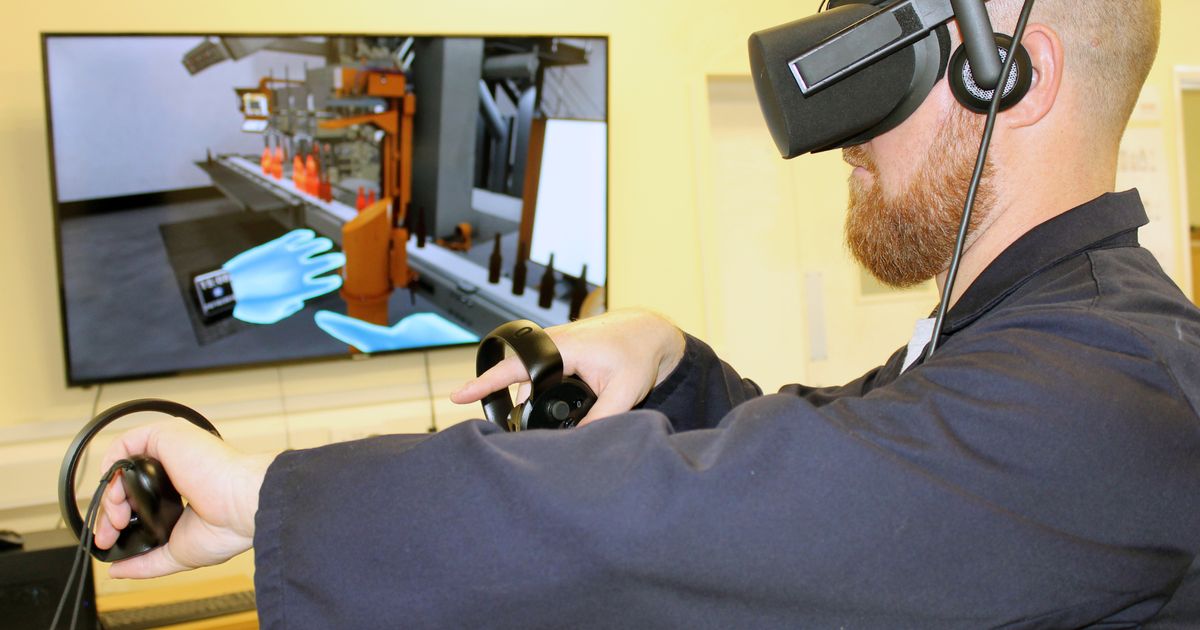
Published: 21st June 2024
A great deal has changed in the glass manufacturing industry since we first started making glass bottles in 1751.
One recent innovation made possible by new technology is virtual reality training for our machine operators, which has more than halved the amount of time taken to train a new starter. In the past operators had to learn while the machines were in operation, and meant it wasn’t possible to look inside the machine and see exactly what was happening to the glass.
Since 2019 we’ve been using virtual reality or VR technology to train new operators to use our machines and to provide ongoing refresher training. We worked closely with VRMT when they first developed the technology and it has since evolved into a full training program covering most of the glass making process.
“The virtual reality equipment has made the training of machine operators much easier and faster and has given them a much better understanding of the inside workings of the equipment” said Alan Lunn, Training Manager at Beatson Clark. “A major part of bottle making is learning the process, and if you don’t understand each step you can’t correctly identify where a fault is being made. Before we had VR training it could take up to a week to understand the process in depth, but now it can be learnt and fully understood in one or two days, because using VR we can cut a running section in half so the trainee can see all the moving parts in event order.” Alan says the same applies to forehearth training for foremen and senior operators. “Using VR we can see the inside workings of the forehearth so we know what happens to glass levels when the tube is worked up or down,” he explained.
“When a machine is in production you can only make minor adjustments, but with VR we can make bigger adjustments in order to see what happens to the gob shape, without the fear of stopping the machine. This allows the operator to know exactly what’s going to change when certain adjustments are made.” Since virtual reality training was introduced in 2019 we have trained 46 new starters for the machines and change team, as well as 10 senior operators and foremen and five engineers.